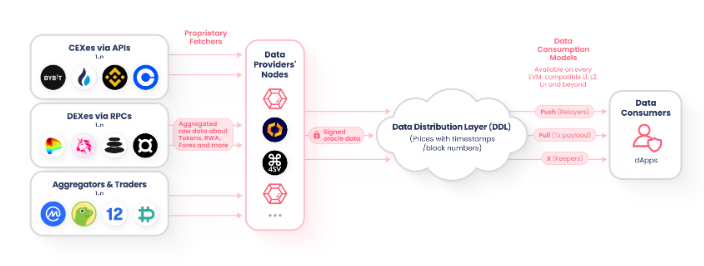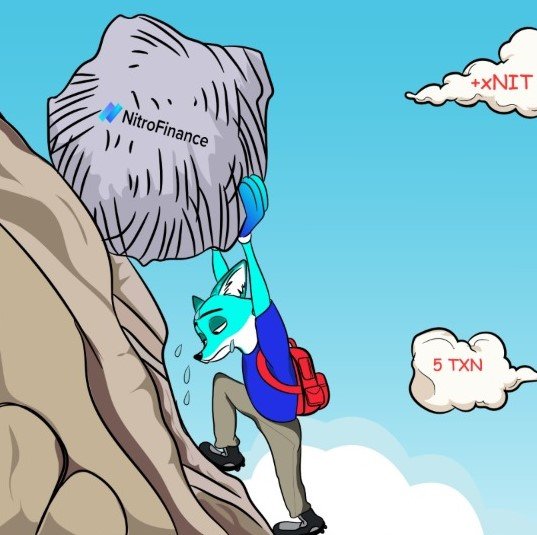Introduction
In the rapidly evolving blockchain space, oracles are essential for connecting decentralized networks with real-world data. Data aggregation is a key function of oracles, enabling them to deliver accurate and reliable data to smart contracts. As decentralized applications (dApps) in DeFi, NFTs, and gaming increasingly depend on external data, understanding how data aggregation works—and its importance in ensuring oracle integrity and security—becomes essential.
This article explores the role of data aggregation, its significance in blockchain oracles, and how it helps build a trustworthy foundation for decentralized ecosystems.
What is Data Aggregation in Blockchain Oracles?
Data aggregation involves collecting, compiling, and verifying data from multiple sources to create a single, reliable data point. In the context of blockchain oracles, data aggregation ensures that the information supplied to smart contracts is accurate, current, and safeguarded against manipulation.
Oracles serve as bridges between the off-chain world and blockchain networks, gathering data on asset prices, weather, event outcomes, and more. Relying on a single data source, however, can expose oracles to inaccuracies, biases, or malicious interference. To combat this, data aggregation pulls data from multiple sources, applies algorithms (like medians or time-weighted averages), and delivers a final aggregated result that smart contracts can depend on.
The Importance of Data Aggregation in Blockchain Oracles

Enhancing Data Accuracy and Reliability
In DeFi and other blockchain applications, smart contract decisions rely on accurate data. For example, lending protocols need real-time asset prices to manage loan-to-value ratios and liquidation triggers. Data aggregation reduces the risk of errors by consolidating data from various sources into a single, trustworthy output, ensuring that smart contracts base decisions on accurate, up-to-date information.
By sourcing data from a variety of reputable providers—such as centralized exchanges, DEXs, and aggregators like CoinGecko—blockchain oracles can deliver data that reflects a more accurate and representative picture of the market.
Mitigating Manipulation and Security Risks
A primary challenge for blockchain ecosystems is the risk of data manipulation or malicious attacks targeting oracles. If an oracle relies solely on one data source, it can be vulnerable to manipulation that could affect smart contract decision-making, potentially resulting in financial losses or system disruptions.
Data aggregation provides a defense against these threats by drawing on multiple independent sources. Even if one source is compromised, the overall aggregated data remains dependable, enhancing security and trust within decentralized applications.
Supporting Decentralized Consensus
In decentralized systems, reaching a consensus on data accuracy is crucial. Data aggregation enables a decentralized approach to data validation, where information from different nodes or sources is cross-verified before being submitted to the blockchain. This decentralized consensus improves data integrity and aligns with the core blockchain principles of transparency, immutability, and decentralization.
For example, protocols like Chainlink use multiple independent nodes to gather data, which is then aggregated with algorithms, such as median value calculation, to prevent any single node from influencing the outcome.
Benefits of Data Aggregation in Blockchain Oracles
-
Improved Accuracy: Aggregating data from multiple sources helps eliminate outliers and ensures that the data provided to smart contracts is accurate and timely. This is particularly important for highly volatile data, like asset prices or market indicators, which can vary across sources.
-
Reduced Latency: Efficient data aggregation systems can lower the latency between data collection and delivery to the blockchain. By optimizing aggregation, oracles ensure real-time data availability, essential for time-sensitive applications such as DeFi and derivatives trading.
-
Enhanced Security: Aggregating data from diverse sources strengthens oracle security by ensuring that even if one source is compromised, the integrity of the aggregated data remains intact. This boosts the security of the entire decentralized network and mitigates the risk of attacks.
Challenges in Data Aggregation for Blockchain Oracles
Despite its advantages, data aggregation in blockchain oracles is not without challenges. Aggregating data from various sources demands a robust infrastructure and effective algorithms to handle inconsistencies across sources. Balancing trade-offs between accuracy, cost, and latency is complex, especially for high-frequency trading or DeFi protocols needing real-time data.
Moreover, decentralized oracles must carefully select data sources to ensure reliability and trustworthiness. Poor-quality data or malicious actors can pose risks if not properly vetted, making source selection a crucial step in maintaining data accuracy.
Conclusion
Data aggregation is fundamental to blockchain oracles, ensuring they provide accurate, reliable, and secure data for smart contracts. By consolidating data from multiple sources, oracles can mitigate risks, reduce manipulation, and offer decentralized applications a secure way to interact with off-chain data.
As the demand for accurate data feeds continues to grow in DeFi, NFTs, gaming, and beyond, data aggregation will remain a cornerstone of blockchain oracles, enhancing trust and functionality across decentralized ecosystems.




评论 (0)